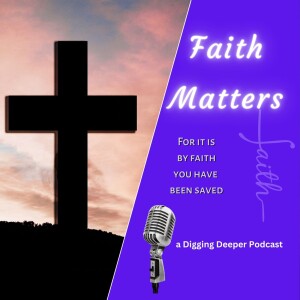
Heaven on Earth (Part 2)
Revelation 21 and 22 are packed with details about the new heaven and the new earth, but one striking feature is the repeated notation of things that are not present. The absence of things with which we are familiar in this world helps us better understand the wonder of existence in the renewed creation.
One of the first things that is mentioned as missing is the sea (21:1). In Hebrew poetry, the sea is consistently used as a metaphor for trouble and distress. Whether or not there will be oceans and beaches in the new earth is unclear, but there is no doubt that all dangers and trials will be banished. Also missing will be tears, death, sorrow, crying, and pain. God will soothe away our heartaches, comfort us in our sorrows, gently dry our tears, and ease away our hurts. The joy of dwelling in His presence will far outweigh the distant memories of hard circumstances. There will be no temple there either (21:22); none will be needed, for the ancient temple symbolized the presence of God with His people, and now God actually will be with them, and He and the Lamb will be the temple.
John also tells us “the city had no need of the sun or the moon to shine in it, for the glory of God illuminated it” (21:23), a fulfillment of Isaiah 60:19–20. Indeed, even if the sun and moon still exist, the glory of God will outshine them. With the refulgence of God glowing everlastingly, there will be no night (21:25). And there will be nothing there “that defiles, or causes an abomination or a lie” (21:27). This will be a place of truth, beauty, and goodness. Finally, there will be no curse (22:3). With spirits and bodies renewed and at last made unable to sin and provoke God’s wrath, His people will exist in a state of perpetual blessedness.
What will be there? These rich chapters list far more features than can be discussed in this limited space, but one thing bears mentioning: the tree of life (22:2). It originally grew in the midst of Eden, but following the fall God expelled man from the garden and placed cherubim there to prevent him from eating its fruit. Now the tree stands beside the river of water of life and “in the middle of [the city’s] street,” where it is easily accessible to all the inhabitants. The abundant life experienced by Adam and Eve before their fall will be known for all eternity by all of God’s people.
CORAM DEO Living before the face of God
Has today’s study whetted your appetite for heaven? What are you looking forward to leaving behind in this life? Looking to God for help, make use of all His means of grace to resist temptation to sin and to experience the abundant life to the fullest extent possible even now. Ask God to make you increasingly fit for your heavenly home.
view more
Revelation 21 and 22 are packed with details about the new heaven and the new earth, but one striking feature is the repeated notation of things that are not present. The absence of things with which we are familiar in this world helps us better understand the wonder of existence in the renewed creation.
One of the first things that is mentioned as missing is the sea (21:1). In Hebrew poetry, the sea is consistently used as a metaphor for trouble and distress. Whether or not there will be oceans and beaches in the new earth is unclear, but there is no doubt that all dangers and trials will be banished. Also missing will be tears, death, sorrow, crying, and pain. God will soothe away our heartaches, comfort us in our sorrows, gently dry our tears, and ease away our hurts. The joy of dwelling in His presence will far outweigh the distant memories of hard circumstances. There will be no temple there either (21:22); none will be needed, for the ancient temple symbolized the presence of God with His people, and now God actually will be with them, and He and the Lamb will be the temple.
John also tells us “the city had no need of the sun or the moon to shine in it, for the glory of God illuminated it” (21:23), a fulfillment of Isaiah 60:19–20. Indeed, even if the sun and moon still exist, the glory of God will outshine them. With the refulgence of God glowing everlastingly, there will be no night (21:25). And there will be nothing there “that defiles, or causes an abomination or a lie” (21:27). This will be a place of truth, beauty, and goodness. Finally, there will be no curse (22:3). With spirits and bodies renewed and at last made unable to sin and provoke God’s wrath, His people will exist in a state of perpetual blessedness.
What will be there? These rich chapters list far more features than can be discussed in this limited space, but one thing bears mentioning: the tree of life (22:2). It originally grew in the midst of Eden, but following the fall God expelled man from the garden and placed cherubim there to prevent him from eating its fruit. Now the tree stands beside the river of water of life and “in the middle of [the city’s] street,” where it is easily accessible to all the inhabitants. The abundant life experienced by Adam and Eve before their fall will be known for all eternity by all of God’s people.
CORAM DEO Living before the face of God
Has today’s study whetted your appetite for heaven? What are you looking forward to leaving behind in this life? Looking to God for help, make use of all His means of grace to resist temptation to sin and to experience the abundant life to the fullest extent possible even now. Ask God to make you increasingly fit for your heavenly home.
More Episodes
#359 - Power of a Simple Prayer : Day 4 of 5
 2022-01-20
2022-01-20
 4
4
 2022-01-20
2022-01-20
 4
4
#356 - Power of a Simple Prayer : Day 3 of 5
 2022-01-19
2022-01-19
 5
5
 2022-01-19
2022-01-19
 5
5
#355 - Power of a Simple Prayer : Day 2 of 5
 2022-01-18
2022-01-18
 4
4
 2022-01-18
2022-01-18
 4
4
#354 - Power of a Simple Prayer : Day 1 of 5
 2022-01-17
2022-01-17
 4
4
 2022-01-17
2022-01-17
 4
4
#348 - Death By Distraction : Day 5 of 5
 2022-01-14
2022-01-14
 4
4
 2022-01-14
2022-01-14
 4
4
#347 - Death By Distraction : Day 4 of 5
 2022-01-13
2022-01-13
 3
3
 2022-01-13
2022-01-13
 3
3
#346 - Death By Distraction : Day 3 of 5
 2022-01-12
2022-01-12
 3
3
 2022-01-12
2022-01-12
 3
3
#345 - Death By Distraction : Day 2 of 5
 2022-01-11
2022-01-11
 4
4
 2022-01-11
2022-01-11
 4
4
#344 - Death By Distraction : Day 1 of 5
 2022-01-10
2022-01-10
 4
4
 2022-01-10
2022-01-10
 4
4
012345678910111213141516171819
Create your
podcast in
minutes
- Full-featured podcast site
- Unlimited storage and bandwidth
- Comprehensive podcast stats
- Distribute to Apple Podcasts, Spotify, and more
- Make money with your podcast
It is Free
- Privacy Policy
- Cookie Policy
- Terms of Use
- Consent Preferences
- Copyright © 2015-2024 Podbean.com






